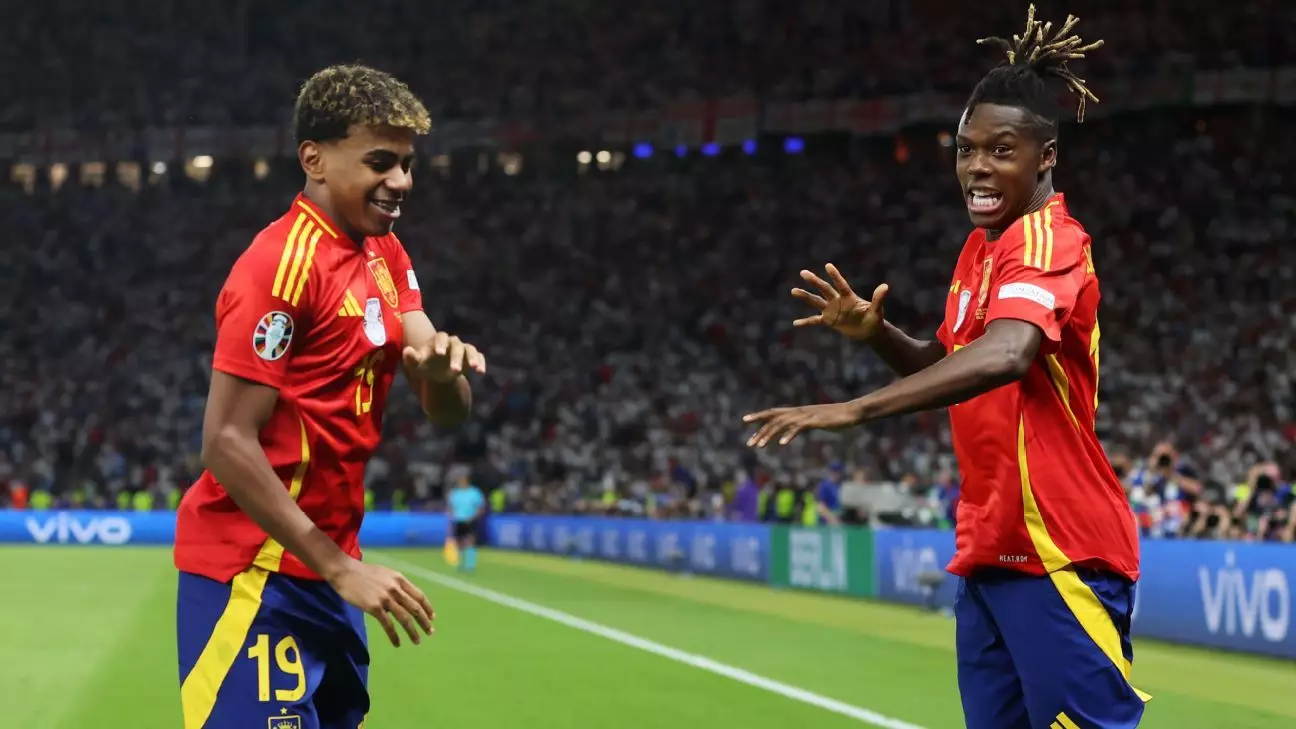Spain’s victory at Euro 2024 marked a turning point for the national team, as they claimed their fourth European Championship title in record-breaking fashion. The triumph showcased a modernized approach both on and off the pitch, with an eye towards further success in the upcoming 2026 World Cup. Led by emerging talents like Nico Williams and Lamine Yamal, Spain’s evolution under coach Luis de la Fuente has been evident, with a style of play that combines traditional possession-based tactics with a newfound sense of versatility and directness.
The recent success of the Spanish national team comes on the heels of a period of stagnation, characterized by disappointing performances in major tournaments. Following their dominance between 2008 and 2012, Spain experienced setbacks at the World Cup and Euro competitions, struggling to break down defensive-minded opponents despite their overwhelming possession. Coach Luis de la Fuente’s appointment in 2022 marked a shift in philosophy, emphasizing the need for an updated style of play that retains the essence of Spanish football while adapting to the evolving demands of the game.
Central to Spain’s transformation are the young talents of Nico Williams and Lamine Yamal, who have brought a new dimension to the team’s attacking prowess. Their combination of flair, intelligence, and unpredictability has been instrumental in Spain’s success, with Yamal being named the Young Player of the Tournament for his contributions. The infusion of youthful energy and creativity has revitalized Spain’s midfield, with players like Rodri and Fabián Ruiz offering a different physical presence compared to their predecessors Xavi and Iniesta.
Spain’s recent achievements across different age groups in international football reflect a deep-rooted understanding of the game that has been honed over the years. Coach Luis de la Fuente’s experience with various youth teams prior to taking charge of the senior squad has contributed to a seamless transition and a shared tactical philosophy across all levels. The continuity in playing style and the ability to integrate new talents into the team seamlessly has been a key factor in Spain’s recent triumphs.
Beyond the technical aspects of their game, the modernization of Spanish football also extends to the makeup of the team and its sense of unity off the pitch. Players like Nico Williams and Lamine Yamal, born to immigrant parents in Spain, symbolize a more diverse and inclusive approach to representing the nation. Their cultural backgrounds and shared experiences have added a unique dimension to the team’s camaraderie, with their joyful demeanor and carefree attitude resonating with both teammates and fans alike.
As Spain looks ahead to the 2026 World Cup in North America, the team’s blend of experienced veterans and emerging talents bodes well for their prospects on the global stage. With a renewed sense of purpose and a commitment to evolving with the times, Spain aims to build on their recent success and continue their legacy of dominance in international football. The newfound balance and versatility within the squad, along with a strong sense of unity and purpose, position Spain as a formidable contender for future tournaments.
